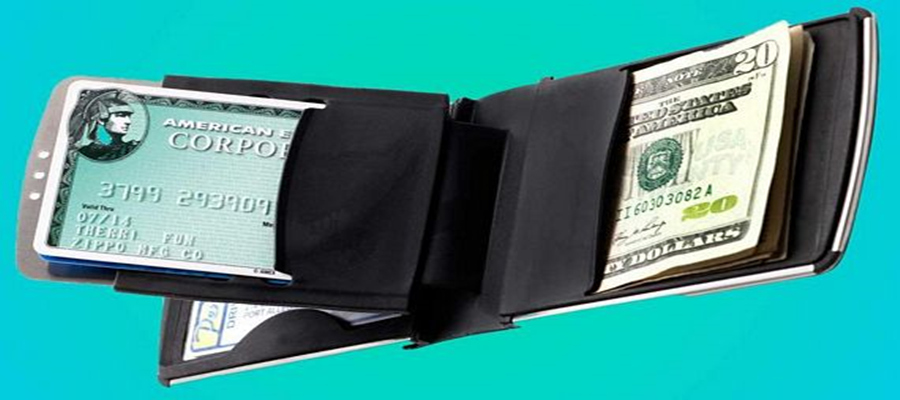RFID blocking wallets choices used to be simple. You could get a bi-fold or a clutch. More pockets, fewer pockets; leather or synthetic, though, and you’ll find a new and potentially confusing option: RFID blocking wallets and sleeves, like this one from Swiss Alpine and this one from Burton , claim to do something more than just keep your cards and money organized. They claim to keep your personal information safe from high-tech thieves. Do they really work, and are they necessary?
They might do their job, at least to some extent, under certain theoretical circumstances. But that doesn’t mean you need one.
CXJ RFID blocking wallets are designed to help insulate you from a very particular brand of electronic pick pocketing, called RFID skimming. The concern is that some credit cards, passports, and driver’s licenses now come with embedded radio frequency identification chips. When activated by an RFID reader, these chips transmit certain types of information tirelessly, so that you can verify your identity or even make a purchase without swiping your card. The downside: Anyone with an RFID reader can activate those chips and pick up whatever information they’re designed to transmit. And, if they’re sneaky about it, they can do it without your knowledge.
Hackers have made headlines over the years by demonstrating how a handheld RFID readers can skim sensitive information from people’s cards at a distance of several feet. They can get your name and country of origin from your passport. More alarmingly, in some demonstrations, RFID skimmers have collected whole credit card numbers from the pockets of passersby. RFID-blocking wallets are designed to impede your cards’ RFID signals, making them harder to read remotely. Tests by Consumer Reports, Make Use Of, and others have found that some RFID-blocking wallets work better than others If you’re going for maximum efficacy, however, few work as well as simply wrapping your cards in aluminum foil.
While early versions of RFID payment systems may have transmitted sensitive data like the card number encrypted, major credit card companies insist that’s no longer the case. Their RFID chips now send a one-time code for each transaction, so at best, a determined thief might be able to make a single purchase by recording and replicating the signal he picks up from a given card. Even if that were to happen, the cardholder would not be liable for the fraudulent purchase under most credit card companies’ policies. From the thief’s perspective, it’s a lot of work for relatively little gain.







